
Transform your nighttime routine
10 hours before bed, stop drinking caffeine. Caffeine has a half-life of 5 hours and will still be circulating in your blood stream to reduce sleep quality even if you can still fall asleep no problem.
Move your body. Research shows that exercise improves sleep quality, so make sure to get some sort of movement in - preferably at least 3 hours before bed.
2 hours before bed, stop drinking liquids. We’re trying to reduce the number of times you have to get up in the middle of the night to pee. If this isn’t a problem for you, fuck you. If it is, let’s be diligent about our liquids before bed.
1 hour before bed, stop the stimulating activity. Social media and new TV shows are incredibly stimulating. The more we can give our brain time to down regulate before bed, the higher the likelihood of us falling asleep faster.
1 hour before bed, avoid bright lights. Dimming the lights will signal to your brain that it’s time to release melatonin and get ready for bed.
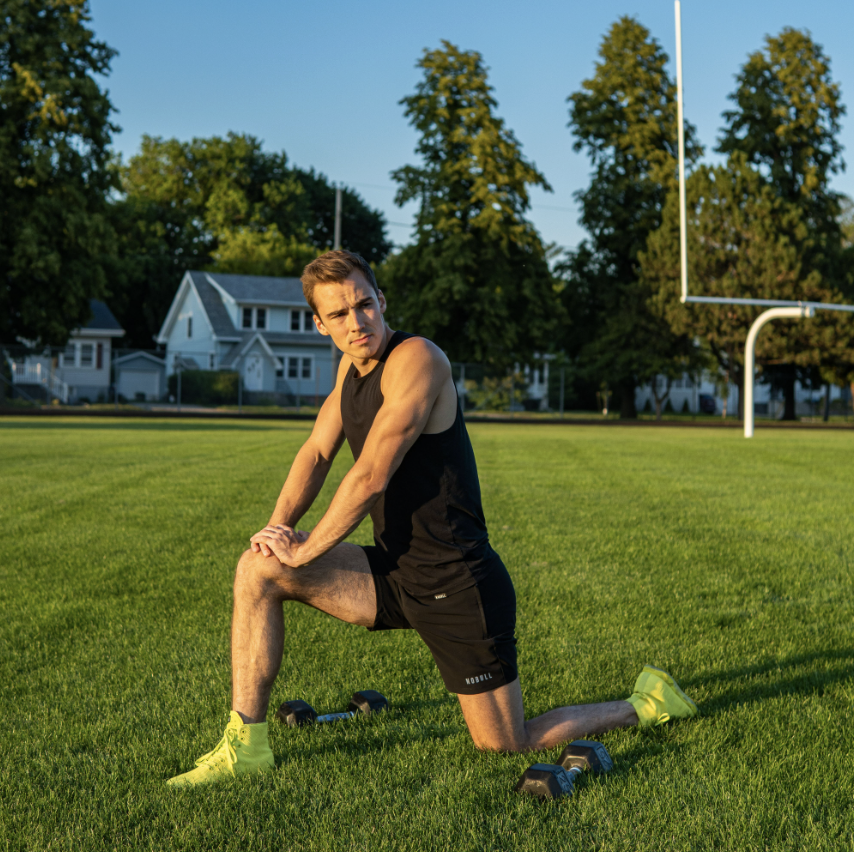
Quit Dopamine
I realized recently that I’m a dopamine junkie. It’s not been an easy thing to come to terms with because it means acknowledging that a lot of the activities I find most enjoyable are the ones that I need to ease out of my life. Tough.
Dopamine is a bitch. It makes you feel amazing, and some of the most insidious acts give you the most. There’s a phrase circling the wellness space right now called, “dopamine deprivation” and one, albeit small, example is delaying your coffee in the morning. If you’re a coffee drinker you probably understand that great sense of relief when you wake up and immediately brew that hot cup of coffee. Even thinking about it right now is giving your brain a small hit of dopamine.
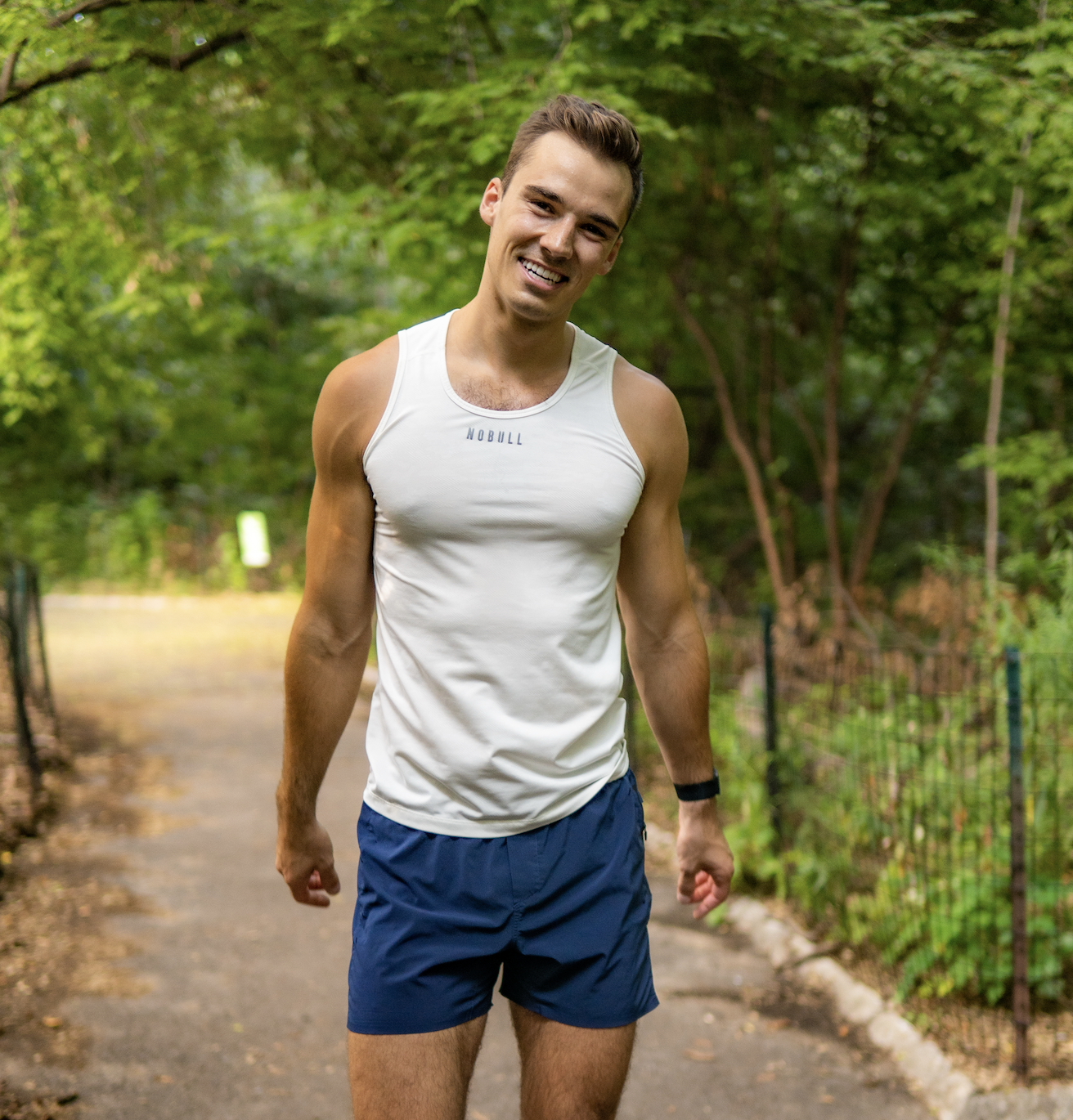
Cardio & Calories
For years of my life I felt like every cardio workout I did had to be at max capacity. I was putting time into exercise, so I might as well get the most out of it and burn the most calories by pushing myself to my limit, right?
There are two flaws with this rationale.

keep the candy out of the house
My dad is a big candy maker. My entire life he’s been perfecting his caramel and turtle recipe, and I have to say, he’s done it.
When Jared and I walked into the house for Christmas this year, there they were—a huge batch of caramels and cookies and other holiday delights.
This candy is basically crack to me. It’s impossible for me to pass by it and not have at least two pieces. I can’t finish dinner without picking out a few cookies for dessert.
The holiday season is already a time when I’m moving less and eating more, and this change in my normal habits is only exacerbated by a seemingly endless supply of delicious home-made sweets that my dad provides for us.

Stop Gambling Away your Health
365 Days To Stop Gambling Away your Health
I’m not a gambler either, but stick with me here.
I walk into the casino and sit down at a blackjack table. I’ve got $400 in my pocket that most definitely came from what I was supposed to put in my 401k this month, but fuck it. I’ve got a life to live.
In my mind, I fully expect to lose my $400, and that’s okay because I think of it as admission to the theme park. Maybe I’ll get a few hours of high dopamine winning (and losing) before my money runs out. Plus, who knows? I could win big and this entire trip to Vegas will be paid off. Who doesn’t love free money?
Even though I don’t do it very often (maybe ten times in my entire life), I fucking love gambling. I sit down at a table and immediately feel like I’m doing something naughty. Every hand of blackjack is a calculated risk that is not in my favor, but I do it anyway because the thrill of potentially winning big is just too enticing. Sure, the odds may be low, but we’re talking about free money here. There’s nothing like it. I know I said I was okay with losing everything, but of course I would love to double, triple, or even quadruple what I came in with.

The “Night Before” Plan
Creating a plan leads to results. If you’re anything like me, I’m always looking for ways to be independent. Be my own boss. Create my own deadlines. Make my own sleep schedule - that’s a must.
To many of us, planning can feel restrictive. Just like the rest of our lives, there is a desire to “go with the flow” when it comes to our health that can sometimes lead to judgment toward anyone with a strict routine. But that’s not what I’m promoting here. I’m suggesting the happy medium between total rigidity and utter chaos.

Eat like you have to
Every once in a while, the same conversations we’ve always had seem to click in a brand new way. And I’m excited to share my new findings with you.
You have the option to never exercise another day of your life. Quality of life will deteriorate quickly, you’ll have to start being reliant on others for everything, and you can forget about being happy with what you see in the mirror, but you could do it.
I hope that…

stop multitasking
I get so pissed when people are on their phones between sets at the gym.
And yes, I do it too. I’m mad at myself, not just everyone else.
Multitasking is baked into my life. I know it’s “bad,” but if I didn’t listen to a podcast while walking my dog Meryl, or watch a show while cooking dinner, I may not get to do those things at all.
The problem with multitasking isn’t just doing two things at once—it’s the constant switching. It wrecks focus and slows us down. Getting into a flow state is much more productive than juggling emails, podcasts, writing, and laundry all at once.

Building Resilience
Physical strength used to signify that you were a protector. You were ready to fight off threats and stand up for individuals who weren’t as strong.
Today, we can generally break down the desire for physical strength into two categories:
1️⃣. Aesthetics
2️⃣. Increased Health Span
Most likely, if you’re lifting weights and doing cardio, it’s because of some combination of the two.
But there’s another factor that I want us to consider…

We’re worth so much more than how our bodies look
As "New Year Shreds" and "Holiday Transformation Promises" start flooding your fyp, it's time for my annual reminder:
Progress pictures used for marketing are just marketing.
Glorifying progress pictures means that we’re automatically establishing aesthetics as our main goal at the gym. We’re saying that how you look is much more important than how you feel and how you move, but there’s no way to see these factors in a picture.

Social accountability
I just had the longest weekend:
Working during the days, birthday party, live workout, seeing a show, chores, cast party for Jared where we didn’t get home until 1am.
Needless to say, when Monday morning came around and I logged on to read all of the scheduled emails that people needed urgent replies to, I really wanted to cancel on my workout partner, Ixchel.
But I decided not to…

Curate your environment
I want you to enjoy the show. Meaning—I want you to enjoy building healthy habits! And that’s just not going to happen if your gym is disgusting, or you always keep the freezer stocked with ice cream, or you watch four episodes of Grey’s Anatomy before only getting five hours of sleep.
Set up the environment and you may be surprised how...

stop waiting for nye
Don’t Wait for New Year’s! The slower we ease into building habits, the more likely they are to stick. That means a January “binge” workout routine isn’t going to get you long-term results.
I was talking about this in my onboarding last week. The new members and I had a great conversation about habits, and I wanted to share a bit of it here. I really believe New Year’s is the worst time to start a fitness routine or new habits. There’s too much noise, too many people at the gym, and way too much pressure.
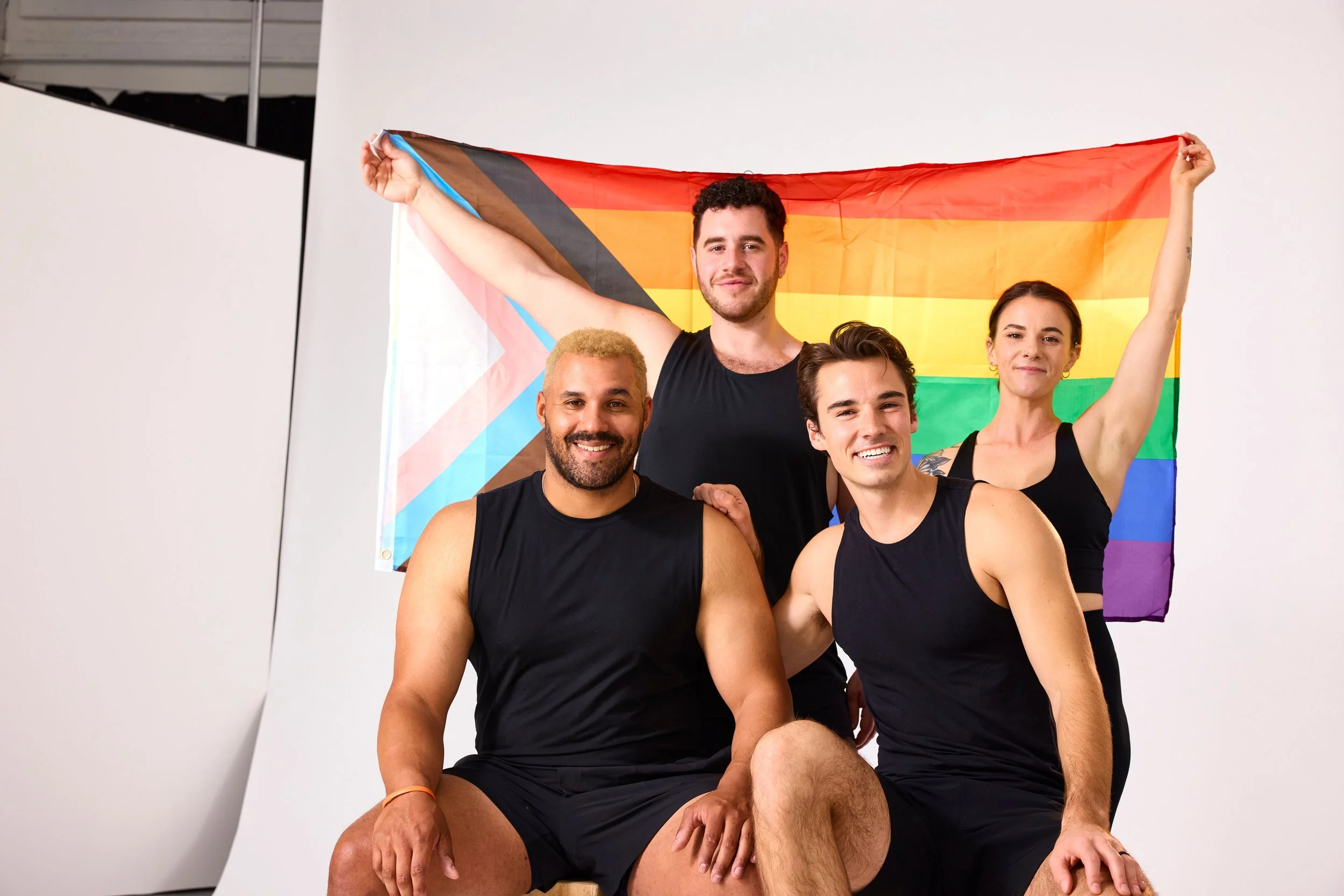
The Plan for 2026
We launched Pridefit app as a way to bring world-class programming to members who wanted directed independence. We knew that this would be great for individuals who already had solid fitness habits under their belt—who didn’t need to rely on a coach every day for motivation getting to the gym.
In 2026, we’re releasing brand new gym programs and we’ve got huge plans to launch new features to keep getting results for our gym-goers.
And we’re also going back to where my fitness journey began: with live classes (hosted on Zoom).

Take Time to Rest
You know how we take mental health days from school and work?
We need those from fitness too.
If you were a professional athlete like Simone Biles or Coco Gauff, your body would need a few days a week to physically recover. They are training so incredibly hard to be the best athletes in the world, and with that kind of intensity comes immense need for recovery that can take days.
For us...

It will feel harder
You’re taking a class and it’s deadlift day. Your coach gives you a new cue to try because you’ve been feeling some pain your lower back.
You drop your butt and make the lift, but it feels like you added 100 more pounds to the bar.
Your coach says, “great job. I’ve never seen your back position stay so neutral. Keep doing that.”
But it felt much harder. How can that possibly be right?
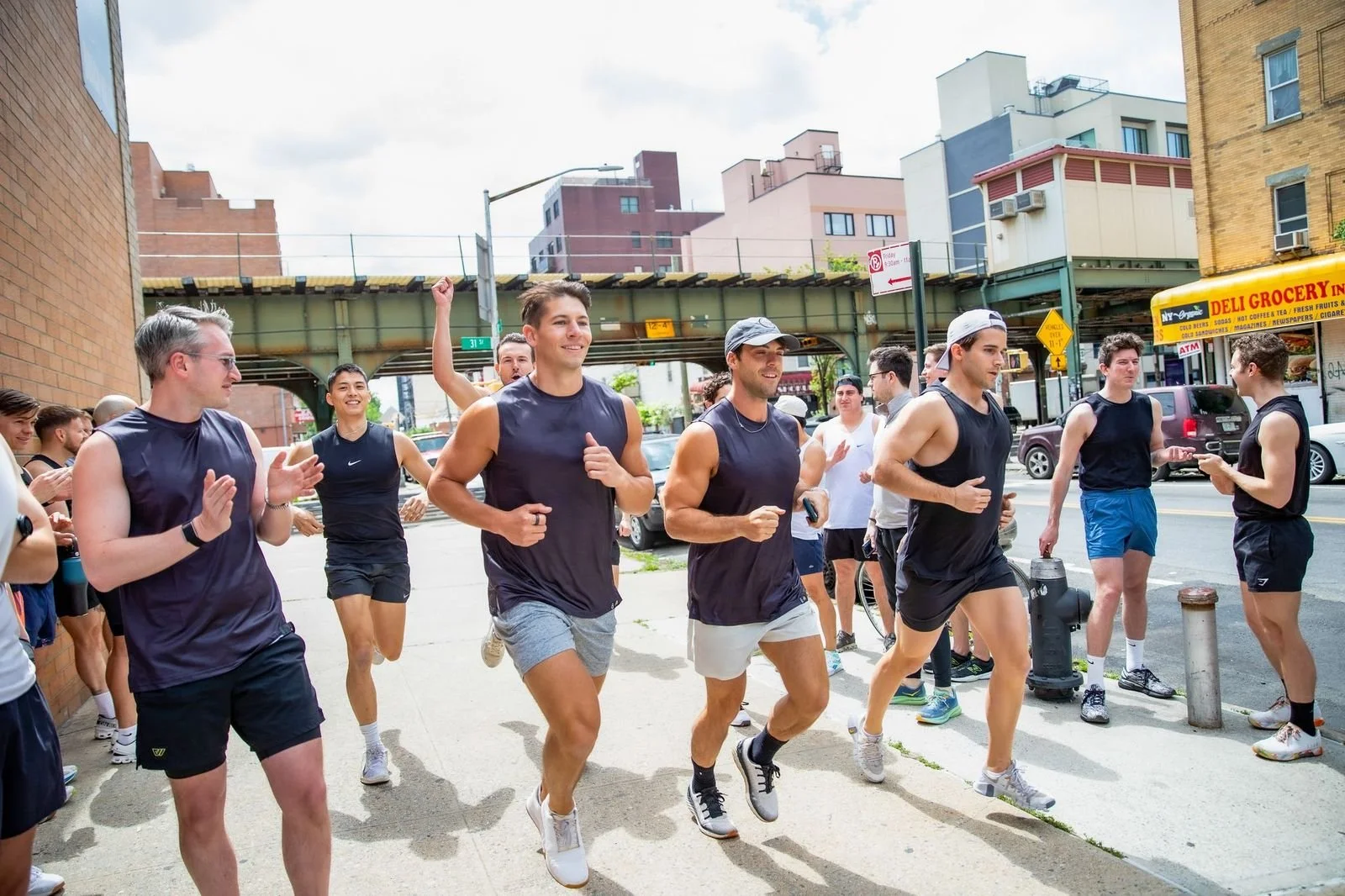
Discomfort vs. Pain
I despise pain.
I hate cold water, cry getting my eyebrows tweezed, and as much as others enjoy it, find absolutely zero joy in any kind of pain in the bedroom.
Maybe that’s a bit TMI, but I tell people how pain averse I am, and inevitably they say to me, “that can’t be true! I’ve seen you almost pass out in a workout! You love pain!”
Which brings up an important conversation:
What is the difference between discomfort and pain?

another big update to the Pridefit app! 📲
We are BACK with another big update to the Pridefit app, so let me walk you through the changes!
Firstly—no more separate login for the community! This has been a huge complaint that we’ve finally been able to address and I’m so excited it’s finally here. From now on, you’ll be logged into the community automatically if you’re logged into the app, or if you’re logging in browser, you can use your pridefit credentials.
Secondly, and maybe more fun, you’ll see that we’ve got new design and new tabs along the bottom of the app.
This was for two reasons...
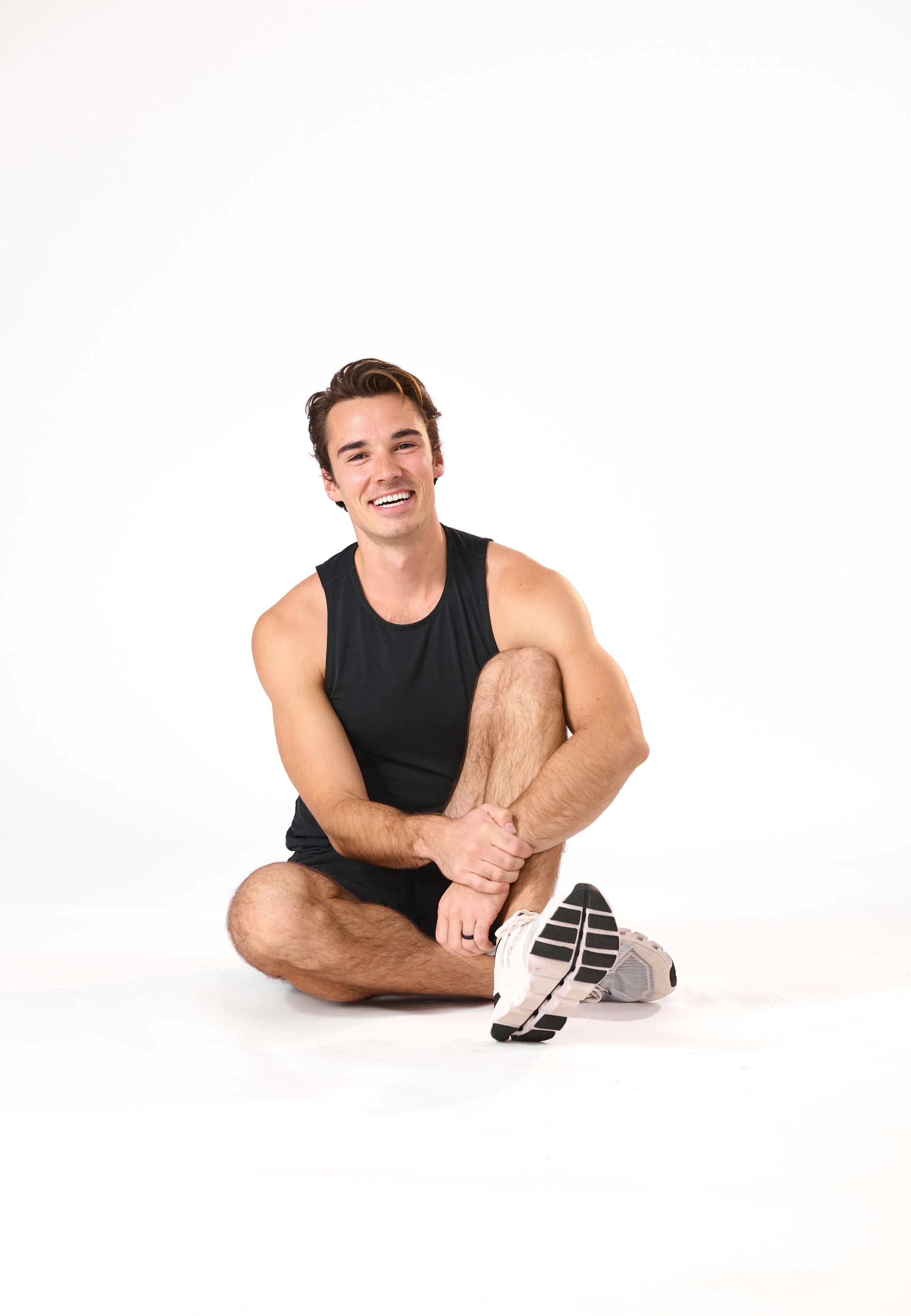
Stop listening, start paying attention
...By no means am I telling you to stop listening to music on your run, but on occasion? That’s exactly what I’m telling you to do. So many of our members can’t bare the thought of doing a workout without something to listen to. Whether it’s music, a podcast, or an audiobook, most people at the gym need some kind of distraction to get through their workout. But is it hurting our long term goals?

2 reasons for doing
Our actions and how we treat people is much more important than whether our selflessness was completely legitimate.
Expecting altruism from humans who have evolved to inherently focus on their own survival seems like the wrong objective. Some selfishness will always be part of the equation and trying to change that will drive us crazy. I’m also by no means saying that we shouldn’t continue to try to prioritize that angel on our shoulder more, mostly because I believe that angel provides higher life-satisfaction.
Yet maybe the most important example in my life comes from fitness.
